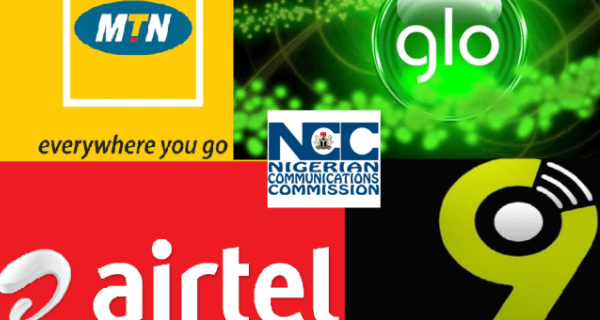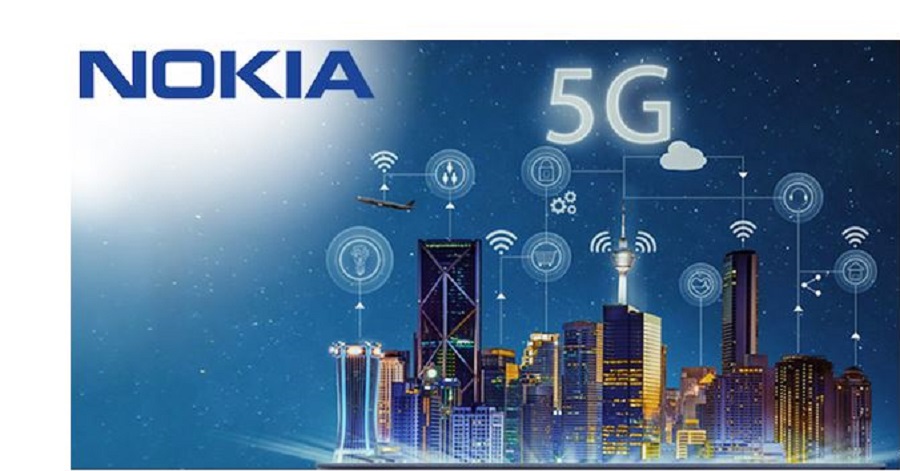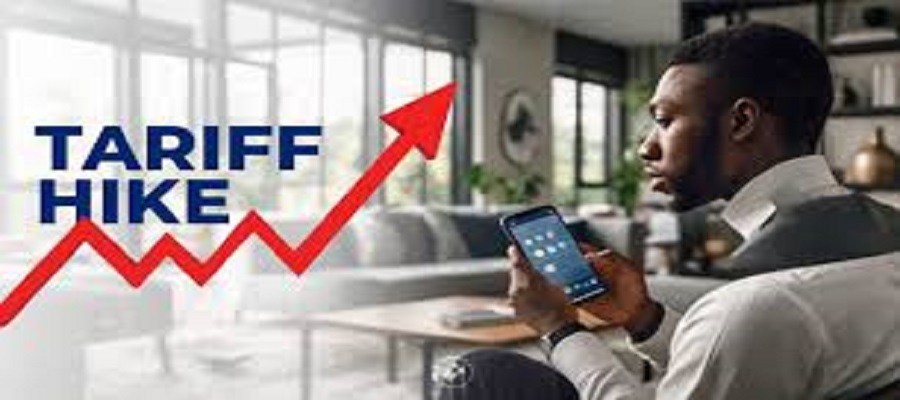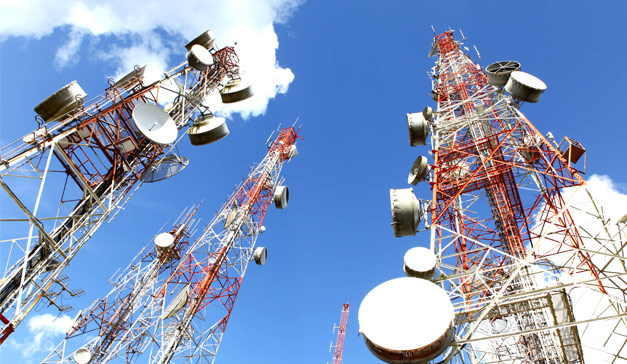Telecom
Banks Wriggle to Avoid Payment of N43Bn Owed Telcos

The dispute over the N42 billion owed telecommunications operators in the country by money deposit banks took a new dimension at the weekend as the banks claimed they are not indebted to the telcos for using Unstructured Supplementary Service Data (USSD) platforms to provide payment services.

Banks collect the money for the service on behalf of the telcos, which are the owners of the infrastructure.
Telcos believe the banks are bent on bullying them to maximize their revenues while the banks on the other hand say there is no such thing as an obligation due to the operators.
Investigations showed that the telcos never stopped the service despite mounting debt, but the minute the banks went into a dispute with telcos on commission payment, the banks pulled the plug with total disregard for customers.
Context
The telcos and banks were in March caught in a web of claims and counter charges as the telcos under the aegis of Association of Licensed Telecommunications Operators of Nigeria (ALTON) demanded N42 billion the banks owed them.
ALTON threatened to withdraw USSD services to financial service providers due to huge indebtedness to telecom network operators.
The telcos explained that the service withdrawal had become necessary due to the lack of agreement on a payment structure with the banks that did not involve the end-user being asked to pay.
Intervention
As the dispute lingered, the Central Bank of Nigeria (CBN) and Nigerian Communications Commission (NCC) waded in and issued a joint statement on the March, 16, 2021.
The statement signed by Osita Nwanisobi, head, Corporate Communications, CBN and Dr. Ikechukwu Adinde, director, Public Affairs, NCC, read:
Joint Statement by Central Bank of Nigeria & Nigerian Communications Commission on Pricing of Unstructured Supplementary Service Data (USSD) Services
Mobile Network Operators (MNOs) and Deposit Money Banks (DMBs) have had protracted disagreements concerning the appropriate USSD pricing model for financial transactions. This resulted in the accumulation of outstanding fees for USSD services rendered leading to threat of service withdrawal by the MNOs.
USSD is a critical channel for delivering financial services, particularly for the underserved and/or financially excluded. To resolve the lingering dispute and ensure uninterrupted services to customers on this channel, the Honourable Minister for Communications and Digital Economy on March 15, 2021 chaired a meeting of key stakeholders to discuss an amicable resolution in the interest of the general public.
Represented at the meeting were the various MNOs, Association of Licensed Telecommunications Operators of Nigeria (ALTON), Association of Telecommunications Companies of Nigeria (ATCON), DMBs (represented by the Chairman, Body of Bank CEOs) and the sector regulators – Central Bank of Nigeria (CBN) and Nigerian Communications Commission (NCC).
We are pleased to announce that after comprehensive deliberations on the key issues, a resolution framework acceptable to all parties was agreed thus:
- Effective March 16, 2021, USSD services for financial transactions conducted at DMBs and all CBN – licensed institutions will be charged at a flat fee of N6.98k per transaction. This replaces the current per session billing structure, ensuring a much cheaper average cost for customers to enhance financial inclusion. This approach is transparent and will ensure the amount remains the same, regardless of the number of sessions per transaction.
- To promote transparency in its administration, the new USSD charges will be collected on behalf of MNOs directly from customers’ bank accounts. Banks shall not impose additional charges on customers for use of the USSD channel.
- A settlement plan for outstanding payments incurred for USSD services, previously rendered by the MNOs, is being worked out by all parties in a bid to ensure that the matter is fully resolved.
- MNOs and DMBs shall discuss and agree on the operational modalities for the implementation of the new USSD pricing framework, including sharing of Application Programme Interface (APIs) to enable seamless, direct and transparent customer billing.
- DMBs and MNOs are committed to engaging further on strategies to lower cost and enhance access to financial services.
- With the above resolutions, the impending suspension of DMBs from the USSD channel is hereby vacated. Therefore, DMBs shall no longer be disconnected from the USSD channel.
The general public is reminded that the USSD channel is optional, as several alternative channels such as mobile apps, internet banking and ATMs may be used for financial transactions.
The CBN and NCC shall continue to engage relevant operators and stakeholders to promote cheaper, seamless access to mobile and financial services for all Nigerians.


Twist
But at the weekend, Nigerian banks claimed they are not indebted to the telcos for using the Unstructured Supplementary Service Data shortcode service to provide payment services.
“There is no such thing as an obligation due from banks to telcos,” Herbert Wigwe, chief executive officer of Access Bank Plc, said on an investor call in Lagos, according to Bloomberg.
“We chose not to make a public statement out of it because it is not appropriate for us to be found fighting with telcos in public,” he said Thursday.
Wigwe is the head of a team of bank CEOs that has been in discussion with MTN Nigeria to resolve a dispute that led some banks to cut off the company from their banking platforms last week.
Implications
The banks’ reluctance to pay the N42billion debt has far reaching effects on both the telcos and subscribers.
Already, the telcos have lost some ₦30 billion as a result of inactive SIM cards occasioned by the NIN-SIM registration.
And according to figures by the NCC, telecom subscribers in the country dropped by 11.84 million in four months.
The unpredictable nature of business in Nigeria is the reason why the telecommunication sector is struggling to attract new investments’.
From the monetary authorities playing god with foreign exchange to multiple taxes to epileptic power supply, the industry is swimming in challenges.
In trying to control both the demand and supply of dollars, the CBN plays god in forex market, and scares off investors. Telcos rely on forex to import equipment for expansion.
Telcos are still seen as cash cows and are subjected to all kinds of taxes, leveis and fees by all tiers of governments.
Because of Nigeria’s notorious unreliable power supply, operators are forced to provide their own electricity to power their facilities.
For now, telcos in Nigeria are clutching expensive bags of operating expenses and subscribers are bearing the burden.
Unfair Practices
The banks intended to hurt the telcos by pulling the plug on the USSD service but ended up hurting customers to secure their profit.
The silence of Federal Competition and Consumer Protection Commission (FCCPC) is worrying.
The action the banks took is collusion of the highest order and goes to the root of competition and anti-trust.
And it is worrying that ministry of Communications and Digital Economy, the NCC and CBN have not spoken out against the lingering settlement that further impoverishes consumers.
Telecom
Nokia Unwraps 5G Gateway for Home Internet

Nokia has introduced the FastMile Gateway 4, a new 5G indoor gateway designed to deliver high-speed internet throughout the home, powered by Wi-Fi 7 technology.

A gateway is a device that connects to a 5G network and provides high-speed internet access to homes or businesses.
The disclosure was made in a statement by Nokia, which highlighted that the device features high-gain antennas and dual-band Wi-Fi 7 to optimise coverage and boost connection speeds.
The FastMile Gateway 4 supports four carrier aggregation and up to 300 MHz of bandwidth, helping operators improve network efficiency while ensuring seamless connectivity for users.
The new gateway is powered by Nokia’s Corteca software, which enables cloud-based Wi-Fi optimisation and supports industry-standard EasyMesh technology for better network management.
To simplify installation, the device comes with a mobile app that helps users identify the best location for setup.
With the FastMile Gateway 4, Nokia expands its 5G fixed wireless access portfolio, offering multiple Wi-Fi 7-enabled models to support different operator and consumer needs.
The launch underscores Nokia’s commitment to advancing 5G home connectivity, providing faster and more reliable internet solutions.
Shiv Putcha, director for Research and Consulting at GSMA Intelligence, stated, FWA has proven to be a spectacular hit in driving broadband access in the last mile around the world.
He said, “However, there are numerous end users, many with potentially unique requirements that need servicing. Nokia has the broadest portfolio today, with multiple FastMile gateway products that combine 5G FWA with dual-band WiFi 7 indoors.
“This, combined with Corteca management software, will help operators cater to multiple segments of demand.”
Dirk Verhaegen, general manager of Broadband Devices at Nokia, stated, “Using Fixed Wireless Access to connect end customers to the internet requires more than just one type of device.
“Our extensive FWA portfolio gives operators access to a wide range of Wi-Fi 7 devices tailored to meet their unique and diverse needs. Our portfolio is even stronger with the addition of the new FastMile Gateway 4, giving operators another power option to deliver fast, reliable FWA broadband to customers – no matter where they live.”
Telecom
Senate Urges FG, Telcos to Cut Data Cost

The senate has called on the federal government to take urgent action to address the rising cost of data services in the country.

This was sequel to a motion sponsored by Senator Asuquo Ekpenyong (APC, Cross River South) during plenary.
Ekpeyong warned that the surge in data costs was a major setback for young Nigerians who depend on the internet for their livelihoods.
He argued that many young people use digital platforms for freelancing, e-commerce, content creation, and software development, making affordable internet access crucial to their economic survival.
“Telecommunication providers in Nigeria have recently increased the cost of data services by as much as 200%. A move that has placed significant financial strain on millions of Nigerians, especially young people who rely on the internet for their livelihood,” he said.
“Young Nigerians have embraced the digital economy, leveraging the internet for various income-generating activities including freelancing and remote work, direct marketing and social media management, e-commerce, content creation on various platforms, online training, software development, web design, mobile app creation, content creation of various platforms, online education, etc.
“The senate notes that young Nigerians have embraced the digital economy, leveraging the internet for their livelihood, leaving them heavily dependent on mobile telecommunications companies for internet access, and that the sudden and substantial increase in data cost threatens their economic survival and limits access to critical digital services.
“The senate is further concerned that the reasons provided by telecom providers for the data price hike, including high operational costs of favourable exchanges, are untenable, and appears that instead of addressing the root causes of the high cost of doing business in Nigeria, the burden is being unfairly transferred to end-users.
“Senate is aware that the high cost of doing business in Nigeria is driven by multiple challenges, such as increased operational risk and insurance costs.
“The senate believes that urgent government intervention is required to ensure that affordable internet access remains available to all Nigerians, particularly to the young Nigerians who are at the backbone of Nigeria’s digital economy.
“The senate accordingly resolves to urge the federal government to engage with telecommunication providers to review the recent increase in data costs and ensure the pricing remains fair and affordable for all Nigerians.”
Telecommunications operators had increased the cost of data and voice services following the Nigerian Communications Commission (NCC) approval of a 50% tariff hike, implemented on February 11, 2025.
Contributing to the debate, senator Victor Umeh (LP, Anambra Central) described the motion as timely, lamenting that apart from the hike in cost of telecommunications services, there were also a hike in the cost of electricity tariff and DSTV subscription.
“Something needs to be done fast, to regulate the high increases. Citizens have no other way to seek redress,” Senator Umeh said.
Senator Sadiiq Sulaiman Umar (APC, Kwara North), also said, “It’s very important to regulate this social crisis.”
In its resolutions, the Senate also asked the federal government to provide an enabling environment for doing business, as well as address the avalanche of challenges threatening businesses in the country.
The Senate also asked the federal government to consider making provisions for free internet hubs for young people to enhance their socio-economic well-being.
Senate President Godswill Akpabio, who presided over the session said the resolutions if implemented would assist young entrepreneurs who use internet for various businesses to grow.
Telecom
MTN Group, Airtel Africa Agree to Network Sharing in Uganda and Nigeria

Driven to extend digital and financial inclusion across Africa, MTN Group and Airtel Africa have entered into agreements to share network infrastructure in Uganda and Nigeria, while ensuring compliance with local regulatory and statutory requirements.

These sharing agreements target improved network cost efficiencies, expanded coverage and the provision of enhanced mobile services to millions of customers, particularly those in remote and rural areas who do not yet fully enjoy the benefits of a modern connected life.
MTN Group President and Chief Executive Officer Ralph Mupita said operators on the continent were seeing sustained demand for data services: “As MTN, we are driven by the vision of delivering digital solutions that drive Africa’s progress.
We continue to see strong structural demand for digital and financial services across our markets. To meet this demand, we continue to invest in coverage and capacity to ensure high-quality connectivity for our customers.
That said, there are opportunities within regulatory frameworks for sharing resources to drive higher efficiencies and improve returns.”
Airtel Africa Chief Executive Officer Sunil Taldar said: “As we compete fiercely in the market on the strength of our brand, services and our offerings we are building common infrastructure, within the permissible regulatory framework, to provide a more robust and extensive digital highway to drive digital and financial inclusion at the same time avoiding duplication of expensive infrastructure to drive operational efficiencies and benefits for our customers.”
The initiative is part of a growing global trend toward network sharing. By collaborating, telecoms operators can explore innovative and pro-competitive solutions to improve service quality while managing costs more effectively.
The sharing of infrastructure has the potential to enable the delivery of world-class, reliable mobile services to more and more customers across Africa.
Following the conclusion of agreements in Uganda and Nigeria, MTN and Airtel Africa are exploring various opportunities in other markets, including Congo-Brazzaville, Rwanda and Zambia.
Among the types of agreements considered are RAN sharing and those aimed at establishing commercial and technical agreements for fibre infrastructure sharing and, if necessary, the construction of fibre networks.
MTN Group and Airtel Africa are dedicated to working with other mobile operators within the countries in which they have a presence to achieve the advantages of network sharing.
Throughout this process, the parties will continue to function as independent market entities and will compete freely in shared markets. This engagement does not preclude the parties from collaborating with other operators in any respective market.

 News2 days ago
News2 days agoPolice Arrest 4 Bank Staff over Alleged ₦270m Fraud, Money Laundering

 E-Financial2 days ago
E-Financial2 days agoUBA Grows Profit to ₦804Bn, Declares N3 Kobo Final Dividend

 E-Business2 days ago
E-Business2 days agoNIMC to Prosecute Nigerians Printing ‘NIN Cards’, Says Only Slip is Legal

 Telecom2 days ago
Telecom2 days agoOpen Access Fabrics Set to Drive Connectivity to Achieve a Digital Economy

 E-Business1 day ago
E-Business1 day agoFG Plans to Link Social Register to NIN for Humanitarian Crisis

 E-Business2 days ago
E-Business2 days agoUnleashing Nigeria’s Business Potential: The Cloud as Catalyst for Growth

 Telecom2 days ago
Telecom2 days agoMTN Nigeria and Pan-Atlantic University Invite Media Practitioners for 4th Media Innovation Programme

 General News2 days ago
General News2 days agoFG, UK FCDO, and Ghana Partner to Launch Sankore



























